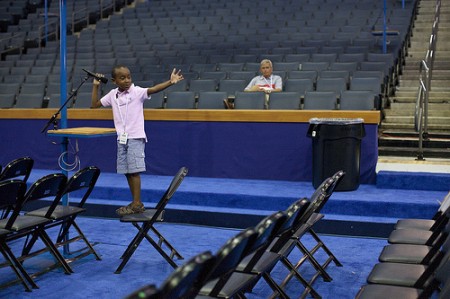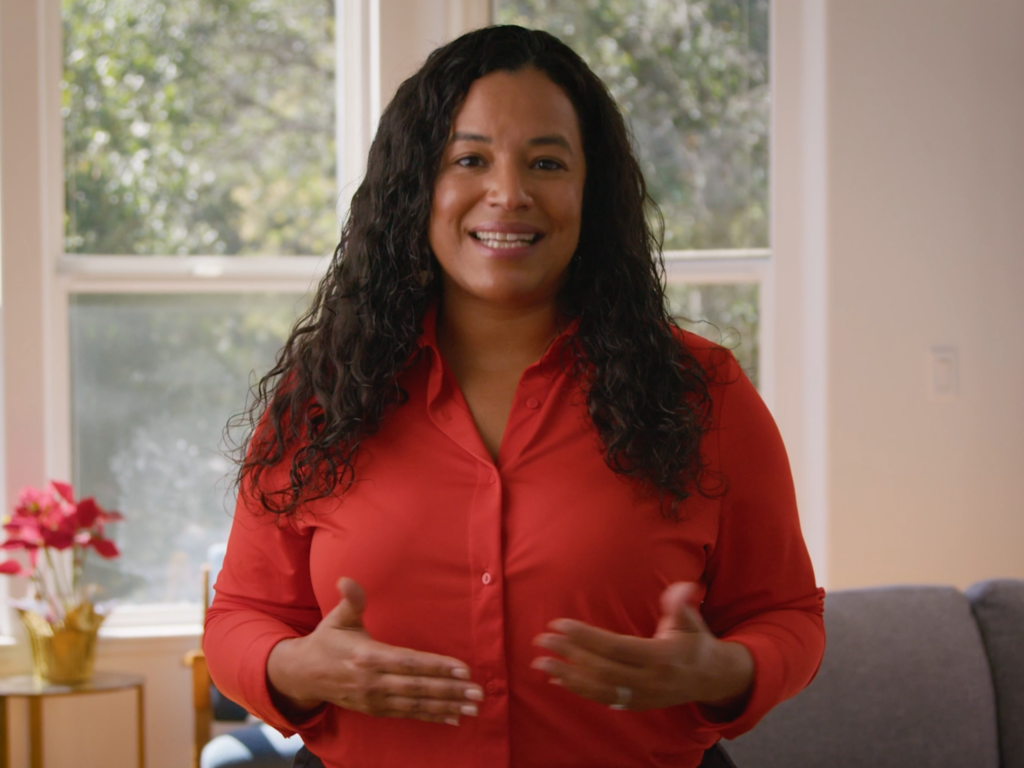Even a handful of years ago, the scene would have been improbable: the leaders of the two major teachers unions sitting down to a serious conversation with education technology entrepreneurs about innovation and reform in the shadow of the Democratic National Convention.
Yet that was what happened yesterday, at an event in Charlotte, NC organized by Democrats for Education Reform. (NewSchools is a nonpartisan organization.) The event reprised one at the Democratic convention in Denver four years ago, which both captured and catalyzed an extraordinary moment in the relationship between the Democratic party and innovative reform efforts. As journalist Jonathan Alter observed yesterday, the Democratic Party could have held its events on education reform “in a phone booth” previous to the 2008 event; yesterday’s event, like the one in 2008, brought out hundreds.

The event yesterday focused mostly on two panel discussions – one involving elected reform heroes, which Alter moderated; and the second one, on innovation, which I moderated. In the mix on the innovation panel were Randi Weingarten, president of the American Federation of Teachers; Dennis Van Roekel, president of the National Education Association; John Katzman, the serial entrepreneur behind the Princeton Review, 2tor, and Noodle; Joel Rose, who founded School of One and then New Classrooms Innovation Partners with NewSchools’ support; and Joe Reardon, Mayor of Kansas City, Kansas.
For some commentators, the real news from the innovation panel yesterday reflected Woody Allen’s observation that “80% of life is just showing up.” The impressive Alexis Morin, cofounder of Students for Education Reform, tweeted, “Mark of amazing progress for #edreform when @rweingarten and Van Roekel of [NEA] deeply engage at the [DFER] event.” It’s surely true that merely bringing the teachers unions and entrepreneurs together for a conversation—marked more by agreement than debate—under a tent emblazoned with the word “Reform” marks a new moment. Indeed, both unions are participating directly in the burgeoning education technology revolution, most prominently of late through the AFT’s widely publicized Share My Lesson investment.
Perhaps it’s not surprising that in this early outing, labor leaders and entrepreneurs would play nicely together, but there were moments when it seemed like speakers had accidentally exchanged note cards. Try matching these statements to their owners (I’m relying on Twitter for some of the quotes). Possible speakers are John Katzman, Joel Rose, Dennis Van Roekel, Randi Weingarten.
What they said
- “Pay good teachers more, bad teachers less? I say you shouldn’t have ANY bad ones!”
- For-profit entrepreneurs have not carried their weight in improving education.
- We need to ensure there is a good public school choice for every child.
- It’s important to advance blended learning models.
- Nothing matters more than the quality of the teacher in the classroom.
- Teachers’ contracts should embrace school designs and staffing models that may look different from school to school within a district, including blended models and longer school days
Answers:
- Dennis Van Roekel
- John Katzman
- Randi Weingarten
- Dennis Van Roekel
- Joel Rose
- Randi Weingarten
I don’t want to be starry-eyed or naïve about what this means; what matters is what happens on the ground for kids, and the distance from national political stage to local reality is often long and filled with mischief. Even so, it was striking to see the representatives of a combined 4.7 million teachers union members largely in agreement with technological innovators on the need for systems with the openness and agility to rapidly adopt new models that promote real learning, especially for underserved students, in a place called “school”.
I hear you saying: that all sounds nice, but did people disagree on anything?
Yes. The main moment where you could feel some tension in the rope involved the role of for-profit entrepreneurs in education. It’s perhaps an odd debate in a sector where everything from school meals to textbooks have come from for-profit companies forever; even so, it’s been much debated lately, particularly because of the rapidly growing numbers of for-profit education technology companies. Weingarten quickly acknowledged the vital and largely uncontroversial role of many for-profit companies, including the Share My Lesson partnership. (An even more interesting AFT project, involving a wide variety of organizations and agencies in a hard-hit part of West Virginia, includes some for-profit companies and marks the first place I know of where NewSchools and the AFT have been co-investors.) Yet she also expressed caution; Van Roekel offered a stronger view, arguing that the motivation of for-profit entities is inherently at cross purposes to the interests of children, and especially low-income or otherwise underserved students.
Both of the entrepreneurs on the panel rightly acknowledged that the record of profit-making entities is far from spotless in education. As moderator, I restrained myself from adding a point in the live discussion that I will make here: particularly in technology, it’s simply extremely hard for startup organizations to attract the cash and talent they need to get off the ground as nonprofits. (NewSchools invests in both for-profit and nonprofit organizations; any funds derived from our for-profit investments go back into our investment work.) Millions of teachers and families today benefit from products developed by for-profit startups that likely would not exist in a nonprofit configuration. And many of these organizations specifically and intensively target underserved students. However, the tension that Van Roekel points to is real. Especially when families are the customers, the affluent typically enjoy easy and quick access to the best products. Ensuring that underserved students enjoy the same access is part of the work that we have taken on the NewSchools, and must be the work of many entrepreneurs and philanthropies.
In our short 45 minutes yesterday, I didn’t have time to get into a key question on a related point, and I hope the setting will present itself soon to take this one on:
- Teachers are going directly to the makers of digital tools, bypassing any institutional player – district, union, or otherwise. Does the burgeoning digital revolution in the classroom change the relationship between unions, districts and teachers?
Mayor Reardon had the last words in the discussion yesterday, and he used them to call for more and deeper conversation on innovation. I agree wholeheartedly, and offer major props to DFER for making the conversation happen. Yesterday was a good start; there’s lots more to do.


